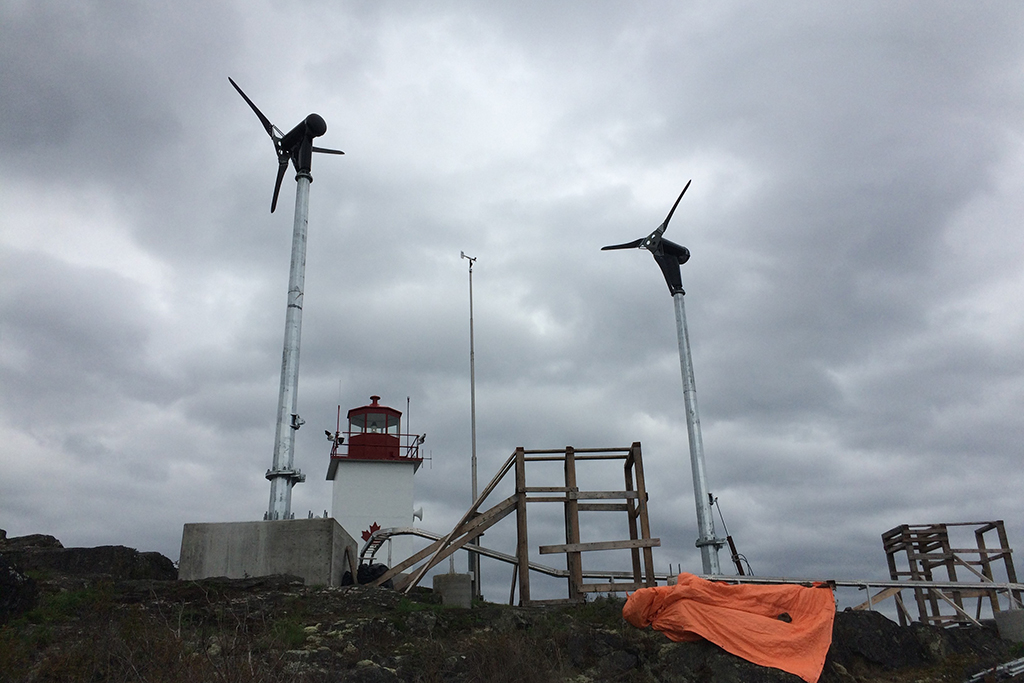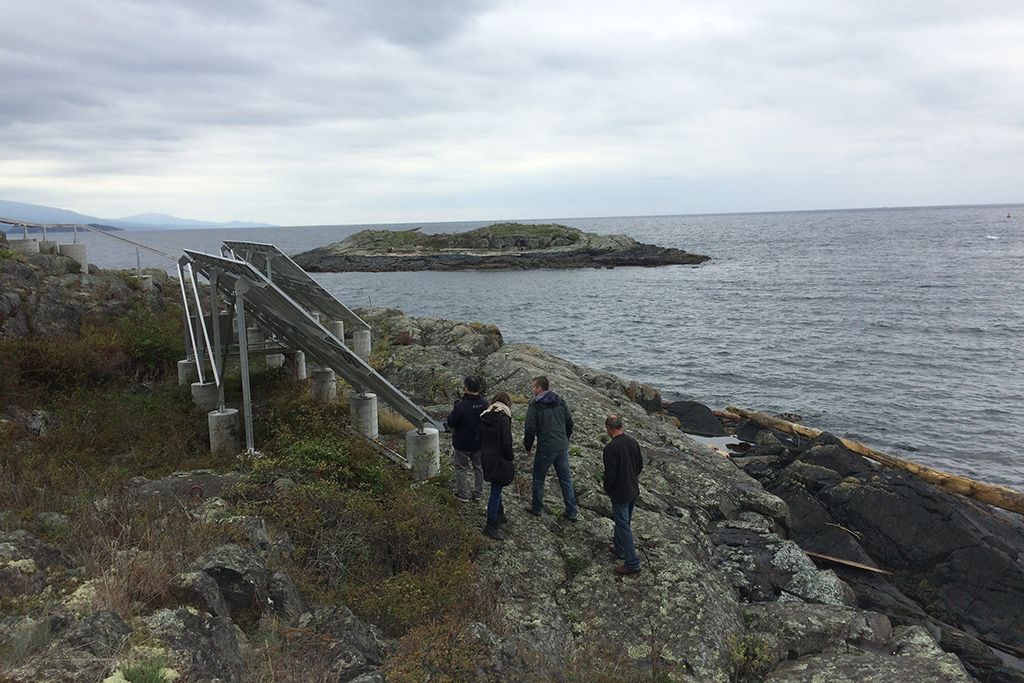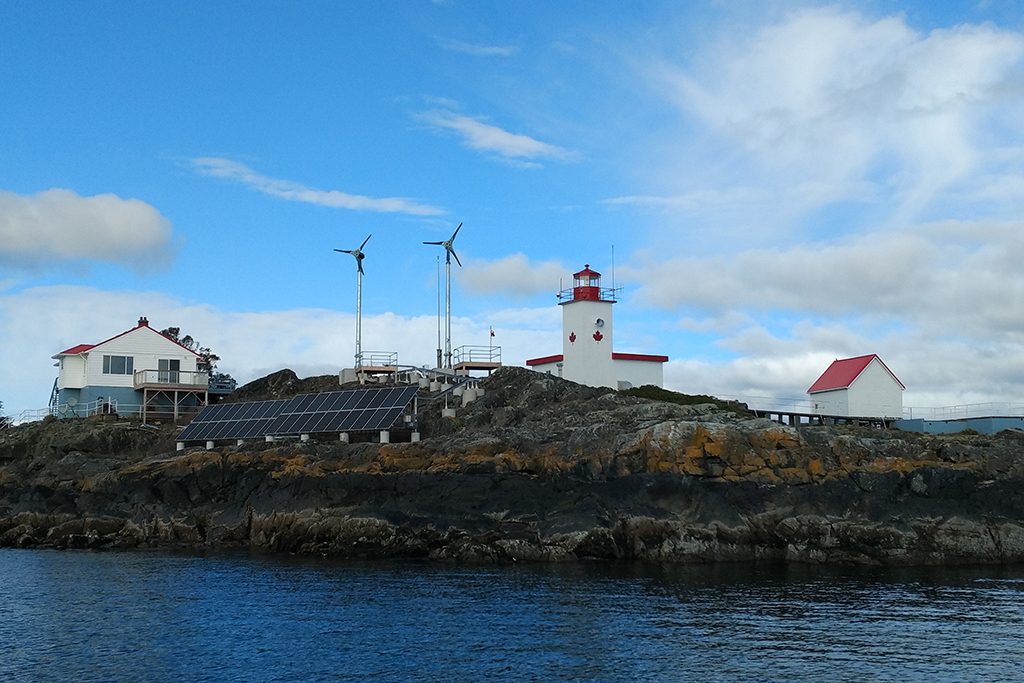B.C.’s 27 staffed lighthouses are shifting from diesel power to renewable energy, with several recently getting solar and wind turbines.
Ten lighthouses are expected to make the changeover in about a year, while the other 17 will be retrofitted as their diesel powered generators meet life expectancy.
The green move makes economic sense because the solar and wind equipment is expected to pay for itself in about four years, says Shaun Loader, senior project manager, the Department of Fisheries and Oceans (DFO) and the Canadian Coast Guard.
Loader says the high annual costs of diesel and transporting logistics weigh in the decision to shift to renewables. “Imagine trying to fuel some of these sites with 50,000 litres by plane. It’s not very cheap.”
Up until now, the lighthouses have each had two diesel generators supplying a total of 23 kilowatts. With solar and wind replacements one diesel generator will remain as a backup power source.
The lighthouses are on islands and remote mainland locations across B.C.’s West Coast, from Green Island in the north to Merry Island in the south on the Sunshine Coast. The latter lighthouse was recently retrofitted with two five-kilowatt solar arrays and two three-kilowatt wind turbines.
The Cape Beale Lighthouse near Bamfield on Vancouver Island is currently under construction and Entrance Island Lighthouse in Nanaimo Harbour was recently completed.
Loader says getting equipment and materials into some sites is a challenge. At Merry Island, concrete was transported on a barge and pumped to the site while at Cape Beale the concrete pour was coordinated by helicopter transporting buckets from a concrete staging area near the site to unload into foundation formwork. “It’s a sight to see.”
The turbine poles are between 30 and 60 feet tall and weigh up to 2,000 pounds. They are transported via Coast Guard helicopters. The first time the wind poles were laid horizontally with a hydraulic ram raising them into place. “Going forward I think it would be easier if we used our helicopters to mount them vertically (bolted onto concrete foundations),” says Loader.
Most of the projects are built in-house by Canadian Coast Guard construction crews. On some projects, however, the government will go out to tender and it also has the option of using pre-qualified contractors.
Victoria Battery supplied inverters and batteries and Canadian Solar is supplying solar arrays for many sites. SD Wind of Scotland is the supplier for the wind turbines and it will be supplying turbines.
Each lighthouse makeover is being done in stages, with the first stage including the installation of three invertors (each capable of producing 7 kilowatts of power), battery banks and a control system hooked up to the existing dual diesel system.
Loader says a backup diesel generator will remain at all of the sites as a backup for times when “weather isn’t ideal (for wind or solar power).”
He says the average daily power demand at each lighthouse facility is 3-5 kilowatts, but peak loads necessitate higher capacity generation. Data from installs so far indicates that diesel generators are not often required in summer and for only about four hours a day in winter.
Most of the power consumed is not from the lighthouse navigation lights, but rather from the homes on site. “It is the lens on the lighthouses that makes the lights look so bright.”
So far, Loader says lighthouse keepers (there are usually two per lighthouse) have welcomed the green energy changeover. “They really appreciate the no-diesel generator noise.”

1/2
DEPT. OF FISHERIES AND OCEANS AND THE CANADIAN COAST GUARD
2/2
DEPT. OF FISHERIES AND OCEANS AND THE CANADIAN COAST GUARD











Recent Comments